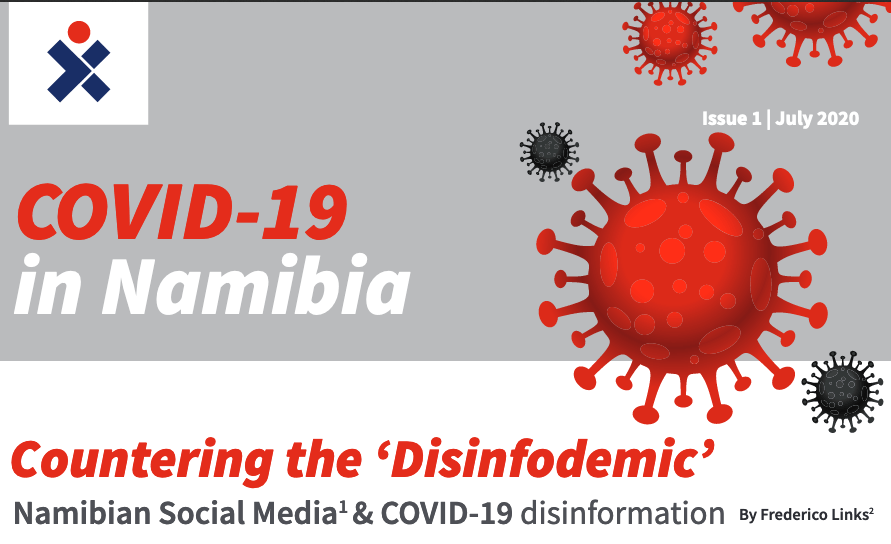Image courtesy: Institute for Public Policy Research (IPPR)
In the wake of the latest spate of mutual disinforming to afflict Namibian social media, the following observations and recommendations from the IPPR’s recent briefing paper bears spotlighting.
There appears to be no end to the tide of COVID-19 related disinformation sweeping and sloshing continuously through social media and messaging platforms.
In a recent briefing paper for the Institute for Public Policy Research (IPPR) on the COVID-19 disinfodemic, Namibia Fact Check editor Frederico Links made the following observations, among others:
- Mutual disinforming has become a feature of especially group engagements on WhatsApp and Facebook;
- It would appear that a significant portion of Namibian social media users use others on social media platforms as their primary sources of information and many appear to be largely oblivious to information emanating from official sources or the reporting of traditional news media, both off- and online;
- Namibian social media users have on the whole demonstrated a concerning susceptibility to viral COVID-19 related lies, myths, hoaxes and conspiracy theories;
- Indications are that the vast majority of COVID-19-related disinformation content encountered on Namibian social media emanates from ‘outside’ Namibian social media;
- Namibian news media organisations and news reporters have been substantially and conspicuously absent from efforts to debunk or fact check COVID-19 related lies, myths, hoaxes and conspiracy theories, and instead some have been prominently part of the disinformation problem;
As for recommendations to mitigate these actions and occurrences, basically:
- Media and information literacy needs to be prioritised as a matter of urgency by Namibian public health and education authorities, and civil society and the news media alike;
- Finally, it is recommended that Namibian media consumers and social media users become more critical receptors and disseminators of information, both online and offline, and that they individually and collectively take responsibility for de-polluting the information landscape by actively engaging in ensuring that shared information is credible, verified information.
And in conclusion:
- By end June 2020, it was clear that the practices of social media and messaging platforms were part and parcel of the disinformation problem. Social media is the single most important element in the disinformation equation.
The full paper can be accessed and read here.
NOTE: Namibia Fact Check is a project of the Institute for Public Policy Research (IPPR).

